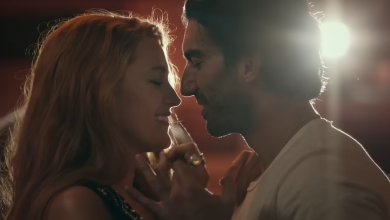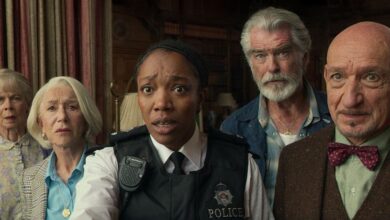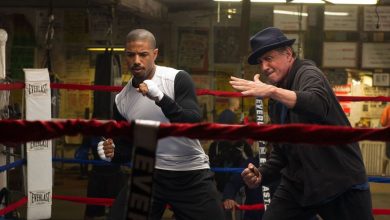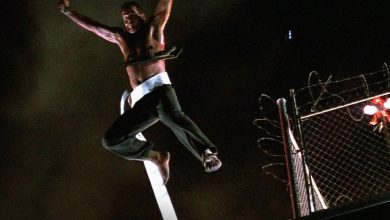Understanding Subtext in Dialogue: 5 Key Scenes
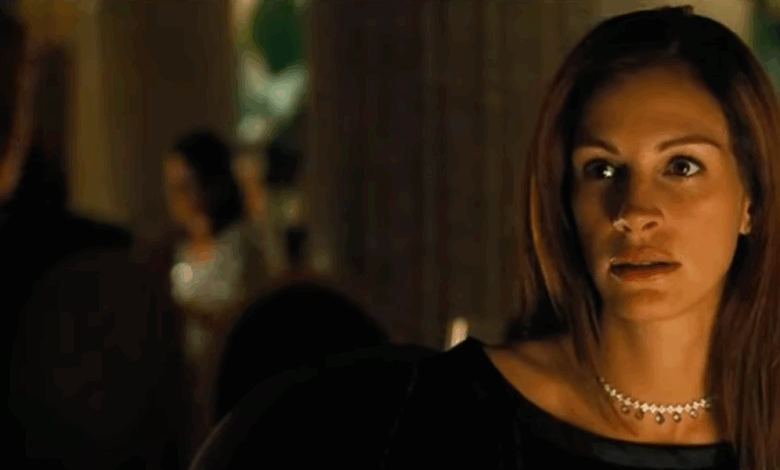
In storytelling, characters often communicate more through what they don’t say than through their words. This article explores five powerful scenes from films and television that exemplify how subtext can convey complex emotions and relationships.
5 Scenes That Show How Subtext Really Works in Dialogue
We rarely say exactly what we mean, so why should the characters we write do it?
Not everyone is super emotionally intelligent, especially in the moment, so in the middle of a fight, we probably wouldn’t say, “I’m feeling angry with you because you betrayed my trust.”
Instead, we’d say something like, “You left the toilet seat up again,” while slamming the door. The subtext is still about a kind of betrayal, but the root hurt is not what we can articulate in the heat of the moment. It’s easier to fight about the bathroom than betrayal, after all.
This is why great dialogue rarely has characters saying exactly what they mean. Real people deflect, avoid, and talk around their feelings. Subtext is the tension bubbling beneath surface conversations. It’s where the emotional truth lives.
These five stellar scenes from films and TV let audiences read between the lines, where characters reveal themselves through what they’re afraid to say directly.
Ocean’s Eleven: “He doesn’t make me cry.”
This is a scene that always stops me in my tracks and gets my full focus, because it’s so tense on several levels. When Danny Ocean asks Tess if Terry Benedict makes her laugh, her response cuts straight to the heart of their issue: “He doesn’t make me cry.”
This is really about emotional safety. Tess sidesteps Danny’s real question (“Do you love him?”) while revealing everything in her answer.
This relationship might not be what she really wants, but she’s chosen security over the danger and intensity Danny offers. She’s really saying that she wants stability, not the uncertainty and pain that comes from a life with a thief.
No Country for Old Men: “What’s the most you ever lost on a coin toss?”
Another famous and often-discussed example. Anton Chigurh’s coin toss scene with the gas station owner works because it’s not really about the coin toss at all. It’s about power and fate and life and death.
When Chigurh asks, “What’s the most you ever lost on a coin toss?” and forces the terrified proprietor to call it, the subtext reveals Chigurh as an agent of arbitrary death.
His chilling line, “You’ve been putting it up your whole life, you just didn’t know it,” encapsulates the film’s central theme, which is that the choices we make either bring us closer to life or closer to death.
See More ...
Succession: “Look how far you have come.”
This conversation comes in Season 4, Episode 4 of the series, “Honeymoon States,” just after Logan Roy’s death. Family matriarch Marcia has always been at odds with Connor’s partner, Willa, whom she views as beneath her, with plenty of conversations suggesting Marcia knows that Willa was a sex worker.
When Willa offers condolences for Marcia’s loss, Marcia responds, “Thank you. And to you, Connor,” before delivering the knife: “And congratulations—look how far you have come.”
On the surface, it sounds like praise. But Marcia is congratulating Willa for successfully climbing from escort to potential Roy family member.
Willa’s response, “Well, look at us both!” shows she understands exactly what Marcia means. Both women have used relationships with Roy men to gain status, and Willa is not afraid anymore to flex that status.
Cat on a Hot Tin Roof: “It was love that never could be carried through.”
There are plenty of layers of sexual subtext that couldn’t be spoken directly in 1955 in this film. Margaret’s monologue here is about the true nature of Brick and Skipper’s relationship.
She describes the men’s relationship as “one of those beautiful, ideal things they tell about in the Greek legends” that was “love that never could be carried through to anything satisfying or even talked about plainly.”
The subtext reveals the truth that Brick and Skipper were in love but lived in a world where such feelings had to remain unspoken and unconsummated.
Crazy, Stupid, Love: “You have to fertilize once a month.”
In Dan Fogelman’s script, when Tracy asks Cal if women can have midlife crises, she’s really asking if her affair is justified and if she’s allowed the same freedom men traditionally take.
This subtext is painful. Tracy desperately wants permission to blow up their life, while Cal avoids the real conversation by obsessing over the sprinkler and his azaleas.
Two people are seemingly talking about completely different things while in the same room—one about an emotional crisis, the other about yard maintenance, but their marriage is still the focus. Cal is simply choosing to discuss something he can control as his world implodes around him.
Let us know your favorite subtextual scenes.

